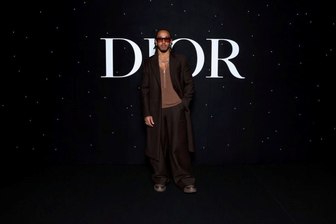In end August, swimmer Joseph Schooling – Singapore’s first Olympic gold medallist – apologised for consuming cannabis while overseas in May, when he was training and participating in the 31st Southeast Asian Games in Hanoi. Under Singapore law, it is illegal for citizens and permanent residents to consume cannabis both within and outside the island.
Following this revelation, German luxury fashion brand Hugo Boss reaffirmed their support for the sports icon, who has been serving as the brand's first Singaporean ambassador since 2018, saying that while Schooling had made a “mistake” he has chosen to own up and take responsibility for it.
But to what extent do celebrity controversies put off – or intrigue – consumers in Singapore? What proportion of Singapore consumers are influenced by celebrity endorsements – and feel it’s important for brands to have a moral message?
Celebrities in controversy: do they put off, intrigue or bore Singapore’s consumers?
Latest YouGov RealTime Omnibus research shows that, when asked about how celebrity controversies may affect their likelihood of watching content featuring such personalities, half of consumers in Singapore say they are neither more nor less likely to do so (50%).
But almost a quarter of consumers say they are less likely to consume media featuring such personalities (23%), while under one in six consumers say celebrity controversies would make them more likely to view content featuring them (15%).
Analysing by age reveals that younger consumers are more likely to be intrigued by celebrities who have landed in controversy than older consumers. Almost three in ten Gen Z (29%) and one-sixth Millennials (17%) say they are more likely to consume media featuring such personalities, compared to 13% of Gen X and 9% of Baby Boomers.
But no such clear age-based pattern emerges for consumers put off by celebrities who have landed in controversy. Almost three in ten Baby Boomers (29%) say they are less likely to consume media featuring such personalities, compared to over a fifth of Gen Z (22%) and Millennials (23%). But among Gen X consumers, only 18% say the same, with a relatively large proportion of almost three in five (59%) saying such news will neither encourage nor deter them from watching such celebrities – when compared to other birth cohorts.
What proportion of consumers in Singapore are influenced by celebrity endorsements?
Latest data from YouGov Profiles shows that over one in six consumers in Singapore (18%) say that celebrity endorsements have an influence on their purchase decisions, while over one in three say they are on the fence (36%).
Analysing by age reveals that men are more likely than women to say that media personalities can influence the things they buy (20% vs 17%).
Do celebrity-influenced consumers feel it’s important for brands to have a moral message?
Data from YouGov Profiles also reveals that half of Singapore consumers say that they appreciate companies having a moral message (50%). But among Singapore consumers who say that celebrity endorsements influence their purchases, this rises to almost one in three (73%).
Want a more granular understanding of the demographic breakdown and psychographic profiles of consumers in Singapore who say they are influenced by celebrity endorsements? Speak with us today.
- To receive monthly insights on media and advertising register here.
- To read YouGov’s latest intelligence for agencies explore here.
Methodology: YouGov Profiles is based on continuously collected data and rolling surveys, rather than from a single limited questionnaire. Profiles data for Singapore is nationally representative and weighted by age, gender and race. Learn more about Profiles.
YouGov RealTime Omnibus provides quick survey results from nationally representative or targeted audiences in multiple markets. This study was conducted online in August 2022 with a nationally representative sample of 1,066 adults in Singapore (aged 18+ years), using a questionnaire designed by YouGov. Data figures have been weighted by age, gender, and ethnicity to be representative of all adults in Singapore (18 years or older), and reflect the latest Singapore Department of Statistics (DOS) estimates. Learn more about YouGov RealTime Omnibus.










